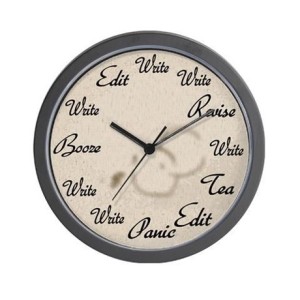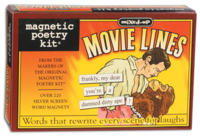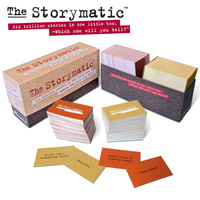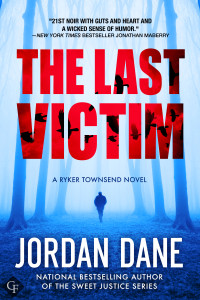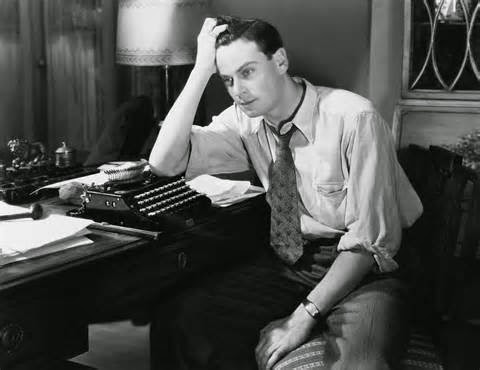by James Scott Bell
@jamesscottbell
 There are a lot of ways not to do something. Like the new boat owner some years ago who was filling up his pleasure craft with fuel for that first time out. Only he mistook the tube that is meant to hold fishing poles for the gas tank. After completing his work he started up the engine.
There are a lot of ways not to do something. Like the new boat owner some years ago who was filling up his pleasure craft with fuel for that first time out. Only he mistook the tube that is meant to hold fishing poles for the gas tank. After completing his work he started up the engine.
The gas fumes ignited and blew the boat owner into the sky. He came down in the drink and was rescued, but the boat was a goner.
You can be just as creative in finding ways not to write your novel. With a little thought and not much effort, you can easily devise methods to prevent you from actually finishing your book. Or finishing a book that has a chance to sell.
So if not finishing or not selling are your goals, I’m here to help you with the following three tips:
Wait for Inspiration
Go to your favorite writing spot with your laptop or pad. Perhaps it’s a Starbucks, maybe a library, or it could be your own kitchen table. Sit down with a cup of coffee and hold it in two hands. Sip it slowly. Do not put your fingers anywhere near the keyboard.
Glance outside a window if one is available. Wait for a flock of geese to fly by in V formation.
If you’re in public and no window is available, simply observe the other patrons and make sure they can see your expression of other-worldly concentration.
You are waiting for inspiration. It must come to from on high and fill you like fire. Until then, do not write a word. If you’re tempted to start working, open up Candy Crush immediately. Tell yourself this will relax the mind so inspiration can pour in. Or allow yourself “just a minute or two” of scrolling. After half-an-hour congratulate yourself on not writing.
If you absolutely feel you must type a few sentences, take 15-20 minutes to do so, then sit back and tell yourself they’re not good enough. Repeat the above pattern.
If you spend three or four hours in this fashion, it will be time well spent in not writing your novel.
Of course, those who think it wise to finish their novel do things backwards. They don’t wait for inspiration. They go after it, as Jack London said, “with a club.” They follow the advice of Peter DeVries, who said, “I only write when I’m inspired, and I make sure I’m inspired every morning at 9 a.m.”
These poor souls think the secret to writing a novel is to write, and work through minor problems quickly and major ones after the first draft is done.
They do things like this:
Establish a writing quota. A quota based not on how much time they spend thinking about writing, but how many words they get down. Some do a daily quota, others do it by the week. But they figure out what they can comfortably get done and set a quota about 10% above that as a goal to shoot for.
Review the previous day’s writing and then move on. By looking at what they wrote the day before, they get back into the flow of their story. They fix little things, spelling and style mostly, but then get on with the day’s current work.
And then they look up one day and see a finished manuscript. They have lost sight of how not to write a novel.
Look Over Your Shoulder
It was a great pitcher Satchel Paige who said, “Don’t look back, something may be gaining on you.”
It’s good life advice, but in order to not write your novel, you must ignore it.
To not write your novel, constantly worry about how bad your book might turn out to be. Pause every thousand words or so and think, This is about the worst piece of crud known to man. Where did I put the bourbon?
This is sometimes known as the “inner critic,” and he is your best friend for not writing a novel.
If you think about those doubts long enough, you can even develop them into fears. Jack Bickham, a novelist who was even better known for his books on the craft, put it this way:
All of us are scared: of looking dumb, of running out of ideas, of never selling our copy, of not getting noticed. We fiction writers make a business of being scared, and not just of looking dumb. Some of these fears may never go away, and we may just have to learn to live with them.
Of course, some writers learn not only to live with doubt and fear, but defeat them. How do they do that? Mostly they simply pound away at the keyboard. They concentrate on the words in front of them and kick that inner critic to the curb. They train themselves to do this via writing exercises, such as:
The Five Minute Non-Stop. Write for five minutes, first thing in the morning if possible, without stopping to think about what you’re writing. No correcting. Just write.
The Page Long Sentence. Choose something to describe (a room or a character) and write a page-long sentence about it, not pausing to edit and going on whatever tangents present themselves.
The List Maker. Whenever you’re stuck for an idea to pursue, make a list. Brainstorm ideas without assessing them. Get lots of ideas, then pick the best one.
Writers who have dulled the inner critic don’t worry about getting the words right. They get the words written.
They really have not got this not writing a novel thing down at all.
Quit
If all else succeeds and you still are intent on not finishing your novel, or finishing one that has a chance to sell, you have a surefire fallback position: stop writing.
David Eddings said, “Keep working. Keep trying. Keep believing. You still might not make it, but at least you gave it your best shot. If you don’t have calluses on your soul, this isn’t for you. Take up knitting instead.”
I hope this has been helpful. Now get out there and don’t write your book!

 For the past three weeks, a baby red-tailed hawk — let’s call him “Red” — visits every morning after I feed Poe (crow) and family, Navi (squirrel) and family, Hip (chippie) and family, and Meep (blue jay) and family.
For the past three weeks, a baby red-tailed hawk — let’s call him “Red” — visits every morning after I feed Poe (crow) and family, Navi (squirrel) and family, Hip (chippie) and family, and Meep (blue jay) and family. It struck me as odd that Poe didn’t retaliate. Not once! I couldn’t figure out why. Did she feel bad about killing Red’s mother? Nah. That didn’t make sense. Poe protected her family. An adult red-tailed hawk will kill a crow fledgling, if they can catch ’em.
It struck me as odd that Poe didn’t retaliate. Not once! I couldn’t figure out why. Did she feel bad about killing Red’s mother? Nah. That didn’t make sense. Poe protected her family. An adult red-tailed hawk will kill a crow fledgling, if they can catch ’em. When Red got too aggressive, Poe let out an alarm call. Within seconds, her murder soared in.
When Red got too aggressive, Poe let out an alarm call. Within seconds, her murder soared in. The sharp-shinned hawk had a new fledgling, who must’ve been hiding in the trees. This little dude flew to the asphalt and attempted to drag his mom off the road before the crows could feast.
The sharp-shinned hawk had a new fledgling, who must’ve been hiding in the trees. This little dude flew to the asphalt and attempted to drag his mom off the road before the crows could feast. Another hawk hadn’t died in my presence till the red-tailed mother targeted Poe’s fledglings a few weeks ago. And again, the baby hawk (now known as Red) hid among the safety of the woods and watched his mother fall to her death.
Another hawk hadn’t died in my presence till the red-tailed mother targeted Poe’s fledglings a few weeks ago. And again, the baby hawk (now known as Red) hid among the safety of the woods and watched his mother fall to her death. Today, Red matches Poe wing to wing, head to tail. Edgar, Allan, and Thoreau still outweigh him but not for long. Red’s transforming into a dangerous predator who’s hellbent on punishing Poe.
Today, Red matches Poe wing to wing, head to tail. Edgar, Allan, and Thoreau still outweigh him but not for long. Red’s transforming into a dangerous predator who’s hellbent on punishing Poe.








